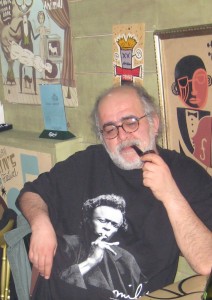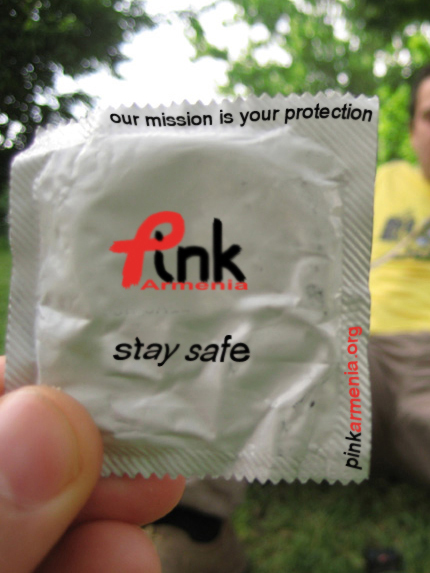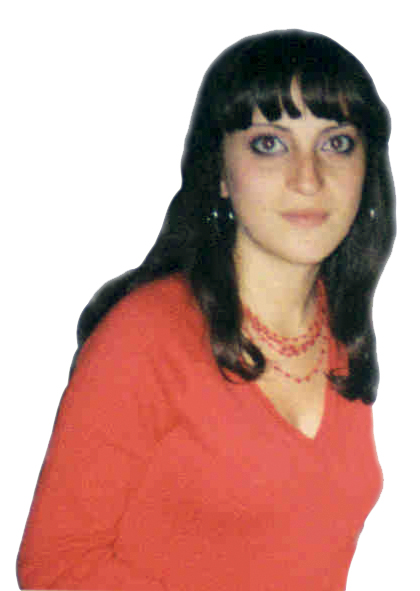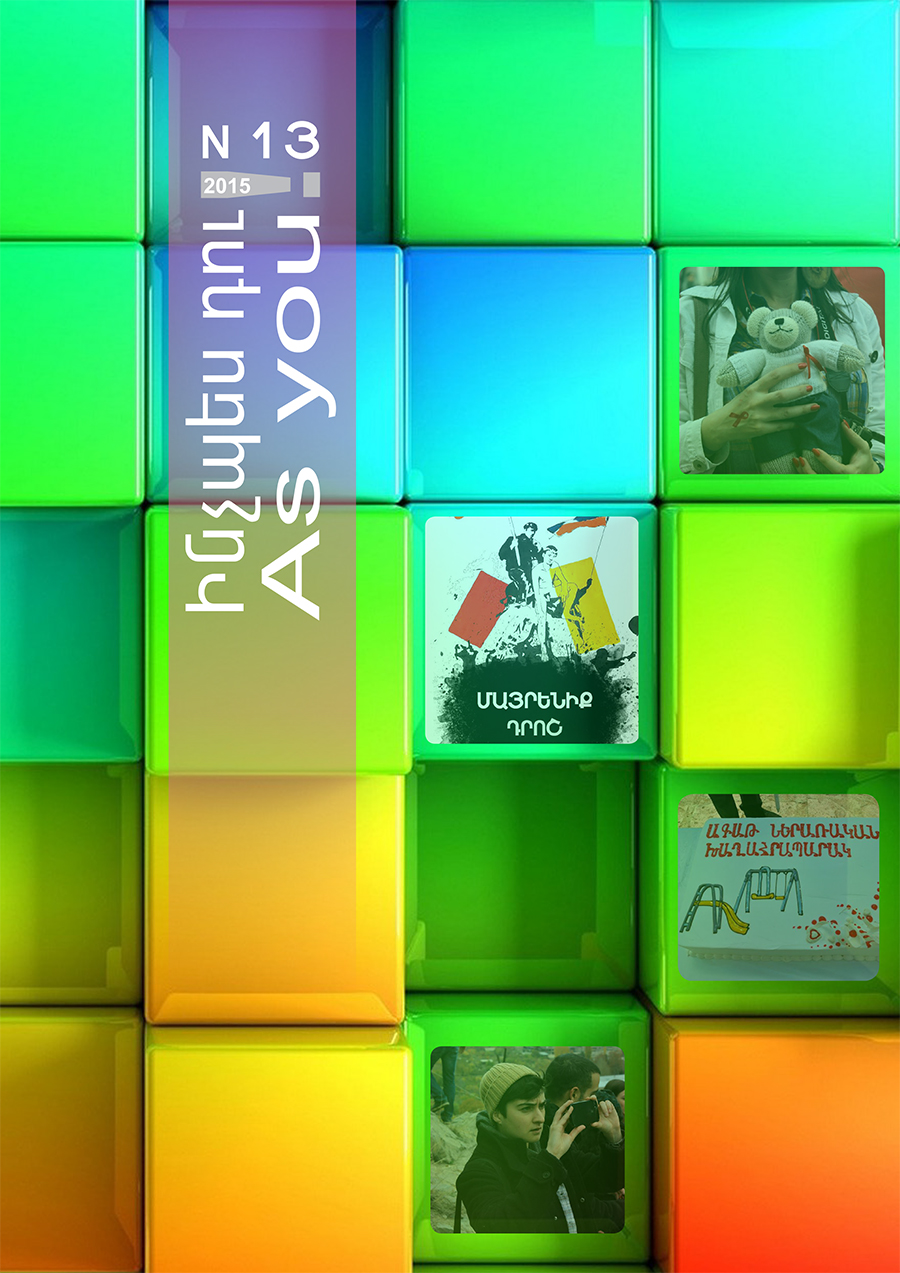“I grew up in the accompaniment of Jazz melodies. My parents held differing values, which is why they brought me up a free thinker and a daring person, and – which is important – they taught me tolerance and respect toward people. I do the same by sowing respect, tolerance and freedom in my children.”
Human rights defender Mikayel Danielyan was born on 17 February, 1959. He graduated from Yerevan State Engineering University by obtaining a degree of an economist. He has been the founding director of “Helsinki Association of Armenia” since 1997.
“I have been working with the “Express Chronicle” human rights magazine since 1991 by writing articles about human rights violations and protection in Armenia. In 1995 they suggested me to establish a human rights organization in Armenia as, according to the international observers and experts, there were some non-governmental organizations registered in Armenia, but it seemed that they do not operate. And I founded Helsinki Committee in Armenia. I left Helsinki Committee in 1996, as well as left the presidency of it by deciding not to work in any organization that would operate in the territory of the Republic of Armenia. In 1997, after long discussions, I have created “Helsinki Association” with the support of my friends and I work here till now.”
On May 18, 1998 the United States and European Union presented Democracy and Civil Society Award to the Helsinki Association in recognition of its achievements in promoting civil society and democratic values. On January 2009 the Embassy of the United States of America in Armenia presented Freedom Defender Award 2008 to Mikael Danielyan for distinguished performance as an advocate for the human rights of all Armenians for many years and especially during the tragic political events of 2008.
“I don’t know what civil society is, I don’t see it in Armenia. There are non-governmental organizations that operate in this or that domain, but civil society per se doesn’t exist. Why I think this way? In 2008, if civil society existed, then everyone should have addressed what happened on 1 March, but no one did anything.”
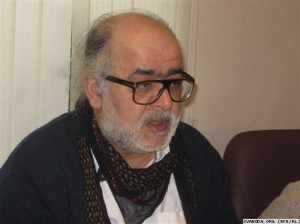 – You have been working on forming and developing civil society for so many years; what is your success track? What changes have been made in these spheres.
– You have been working on forming and developing civil society for so many years; what is your success track? What changes have been made in these spheres.
– It is somehow hard to speak about the success track. In some instances, you feel you’ve won ‘moral’ victories, and there are many of them. They give you more strength and possibility to carry on the cause further which is aimed at the protection of democracy and human rights. One may find distinct frameworks. A lieutenant colonel from Nagorno Karabakh was sentenced for tortures for the first time due to our efforts. There was a guy who was charged for rape and murder, and they sentenced him to 14 years of prison, and we were the only ones that defended him: he was released after five years by withdrawing the charge.
“We were the first in Armenia to advocate for laws such as Law of the Republic of Armenia on Freedom of Information, Law on Alternative Military Service, etc. I am the founder of several non-governmental organizations in Armenia such as “Helsinki Committee of Armenia”, “Helsinki Association of Armenia”, “We For Civil Equality” NGO, etc.
– Public opinion sometimes expresses ambiguous opinions on civic and public activists and their activities: what do you feel and, in general, how do you relate to criticism or irrelevant public slander?
– The society has many “ill” elements that need to be “cured”. When there are people in the society that are ready to give their voices away in voting for 5000 to 10.000 AMD, it is then an illness. When one finds out that someone was beaten up in the police station and thinks that s/he was guilty and therefore beaten up, it is then an illness, too. A lot of things need to be changed in our society, there is need for remedy and ideological changes.
Rock is a kind of music that tackles various social problems by choosing music as means of expression. Rock, rap and all the music in the Armenian society seems to have the same content. And rock groups, instead of singing about serious problems, the events of 1st of March 2008, give concerts on cash registers ballots.
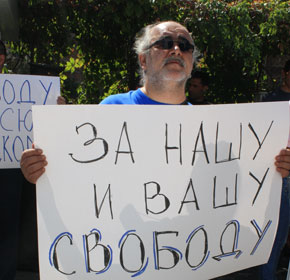
– You are famous in the Armenian society overall. What is the secret of your success?
– I think that the secret behind succeeding and fame is that I do and speak want I think. I am courageous as well, I stand for the cause that I have initiated. I am also a non-compromising person: there are principles that I will refuse in no instance, in no situation.”
– And as a skilled professional, an activist of civil society, what will you advise to our youth and young citizens?
– To be free. I am not speaking of anarchy, but a relative freedom: my freedom ends where the freedom of the other person starts. We need to live not by the past, but by the present. The future needs to be dreamed of. I also advise to respect human rights that, for me, are higher than national and state interests.
“Once I went to a court trial wearing shorts. The bewildered judge looked at me and asked:
Judge: Mr. Danielyan what is this? In what kind of attire you have showed up to the court trial?
Danielyan: Mr. Judge, there is no law limiting or prescribing what to wear during a court case, there are no such requirements, are there?
Judge: Maybe you could try to show some respect to the court?
Danielyan: It has been 10 years now that I try, but it doesn’t work.”
Others about Mikayel Danielyan
Eduard Danielyan, his son
My father is a kind of person who is ready to help everyone and doesn’t expect anything in return, who can understand and accept almost everything (he is tolerant, as they put it). He is happy all the time, he can raise the moods of others, he doesn’t enjoy arguing and fighting, but he is ready to fight against injustice. He doesn’t like ignorance and tastelessness, he rather likes beauty and appreciates true art. He likes a good company very much, but he can cope with diverse people. He doesn’t resemble anyone else, he lives by the present and doesn’t live in a made-up world of himself.
Arman Veziryan, colleague
Mika is a wonderful person, a great friend, a great relative. A happy and pleasant environment is created in the workplace thanks to him, he considers his workers as equals. When I stand next to him, I know that there is a person named Mikayel who is ready to help me and whoever is in need for any case. Mika is the most democratic person on the Earth.
Nvard Margaryan
